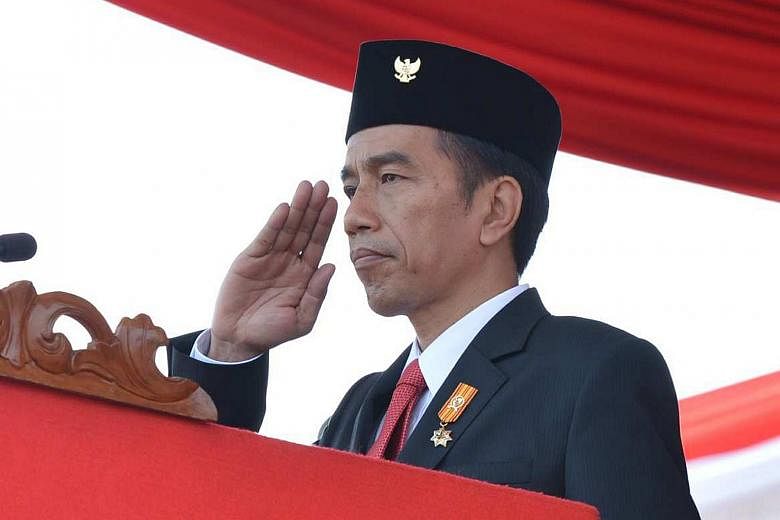In its editorial on Oct 13, 2015, The Jakarta Post criticises the move to limit the tenure of the nation's anti-graft body.
Disappointed by the lack of an adequate deterrent effect built in to the country's legislation on anti-corruption, many have suggested the death penalty for graft convicts.
But rather than supporting tougher anti-corruption laws, House of Representatives politicians from various factions, mostly from the ruling Indonesian Democratic Party of Struggle (PDI-P), seem to prefer killing off the Corruption Eradication Commission (KPK).
While the real motive behind the death penalty for the KPK remains hidden, politicians insist that the commission is an ad hoc institution whose lifetime must be limited.
Article 5 of a draft Bill that would amend Law No. 32/2002 on the KPK stipulates that the commission will serve for 12 years from the day the new legislation takes effect, probably by the end of this year.
There have been no explanations, let alone studies, that can satisfy the public's questions about why the KPK should end its term in the next 12 years, or in its 25th year of full service.
To exacerbate the opaqueness, PDI-P politician Bambang Wuryanto says the KPK's tenure is analogous to a long-term development plan.
Strangely, PDI-P secretary general Hasto Kristiyanto says he is not aware of the limitation of the KPK's lifetime, but supports the idea because it would stimulate the anti-graft body to work harder to catch up with other countries that have always topped global perception index rankings.
Whatever the reasons, whoever is plotting the KPK's extinction does not want the anti-corruption drive to devour them.
They simply followed House politicians who joined a plenary session that unanimously passed the KPK Bill into law in 2002, but then fell prey to the commission's uncompromising enforcement of the law.
There is nothing new with politicians' resentment of the KPK, or their attempts to undermine the commission.
A previous move to promote a weakened KPK failed after President Joko "Jokowi" Widodo rejected it in June.
Fighting corruption is just a matter of consistency.
If he wants to be remembered as a leader committed to the fight against graft, President Joko Widodo must stick to his refusal to allow the passage of any form of legislation that might undermine, let alone kill, the KPK.
Who can assure us that the nation will significantly reduce the severity of its corruption levels over the next 12 years, while rent-seeking and vote-buying practices remain prevalent, while no graft convicts have confessed their guilt except for those who want to contest regional elections, and while lawmakers tend to play down corruption as an ordinary crime?
It is likely the House, although still divisive, will eventually approve the draft amendment as an initiative bill that will force the President to respond.
For Mr Joko, given his track record, refusing to send his representatives to deliberate on the initiative Bill would not be a tall order at all, although he will risk facing another grueling standoff within his own party, the PDI-P.
Let us hope he proves willing to do so.
-------------------------------------------------------------------
The Jakarta Post is a member of The Straits Times' media partner Asia News Network, a grouping of 22 newspapers seeking to promote coverage of Asian affairs.

